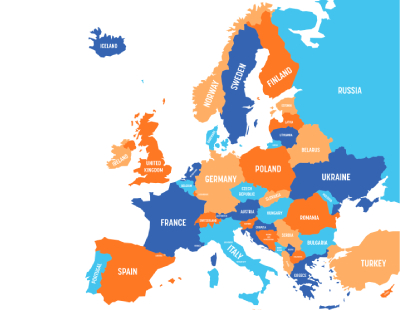Here, he describes what Jetstream is, why a tap-like turn-on/turn-off approach to short-lets could prove advantageous and the impact of Covid on the market.
Can you tell us a bit about Jetstream? How long has it been going and where did the name come from?
We started trading in October 2008. Jetstream (originally Leavetown) provides full-service distribution to a range of hospitality asset owners, managers and aggregators onto the world's largest short-term rental marketplaces and OTAs, as well as our own proprietary site Leavetown.com.
We started developing our technology in 2012 and in 2017 we officially launched our full service distribution solution, Jetstream Hospitality Solutions, for property investors, owners, managers and aggregators in order to help them enter the attractive short-let market.
We currently serve 190 accounts representing approximately 40,000 keys across Canada, USA, mainland Europe and the UK. We provide the technology for both multi-unit and single-unit distribution, comprehensive content creation and listing optimisation as well as third party property operations and automation.
This is overlaid by our own 24/7 multilingual skilled agents providing prompt and professional communications during all stages of the guest journey including pre-booking, post-booking, pre-arrival, during stay and post-departure follow up for reviews.
We are a 100% employee-owned business and are very excited about delivering on our vision for the future.
You say you offer a turnkey solution for property investors and assets owners/managers of large multi-unit properties that will enable them to break into the short-let market in a new way - what does this mean in reality?
Our product and service offering empowers owners, managers and aggregators of multi-unit, short-term rental properties to fully outsource their channel marketing, distribution and guest communications on a shared success model.
We handle all aspects of acquiring bookings including guest screening, communicating with guests through all aspects of their journey, and ensuring the content and pricing is optimised for conversion across all of the largest global short-term rental marketplaces.
In addition, we work with trusted third-party suppliers, the best in their class, to offer property operational technology, keyless entry and guest screening.
How does the turn on/turn off approach to short-lets work?
Our Jetstream platform allows us to handle dynamic availability environments and also to flex between long-term and short-term rentals while retaining and leveraging the benefits of 'best in class' hospitality processes and solutions.
This flexibility allows investors to ‘dip into’ the short-let market through either part of a building or for a limited time period.
How does the master lease or rent-to-rent model - a popular model pre-Covid - work, and why is this alternative way of doing things less risky and more profitable?
The master lease model provides a fixed return to the property owner and the master lease company therefore shares all of the “upside” in terms of revenues made from short-term rentals.
However, under our solution, Jetstream enables the majority of the “upside” to be passed to the property owner through a shared success model where we retain just a percentage of the revenue generated. Therefore it's a true win-win partnership.
Do you think this type of business model will become more popular as we continue to deal with the uncertainty of Covid, Brexit and the timeline of the vaccine rollout?
Absolutely. The tremendous challenges that Covid has placed on the hospitality industry is driving the transition to accelerate away from a “heavy fixed cost” model to embracing and partnering with new, innovative, variable cost technology platforms that enable so many of the previous “manual tasks” to be automated and data-driven.
In addition, guests are much more receptive and engaged in using technology for the entire booking, pre-arrival and in-house communications journey.
At present, are people better off opting for longer-term let models than shorter-term ones? Or is the demand still there for short-lets?
Both long-term and short-term markets have been impacted differently by Covid depending on the location of the property asset. We are expecting leisure/recreation destinations to recover quickly during Q2/Q3 this year, together with increasing demand for city/urban rentals.
In particular, we are seeing increasing demand for longer “short stay rentals” where the new emerging remote worker/digital nomad travellers are looking to stay for between two weeks to three months in both urban cities as well as outdoor recreational destinations.
Jetstream provides the flexibility to market and promote properties for both short and longer-term term rentals therefore maximising revenue opportunities for our property owners and managers.
You are based all across the world - in Canada, the UK, Spain and the Philippines. Has the impact of Covid been different in each of these places and do they all have very different property markets?
In one respect, we’ve been fortunate in that we are present in many different countries. While international travel has stopped, we’ve seen steady demand for short-term rentals locally. This has helped us continue to deliver our property partners revenues from domestic guests even with broader travel and flight restrictions.









.png)










Join the conversation
Jump to latest comment and add your reply
These guys must be making a fortune as I didn't understand a word.
Please login to comment